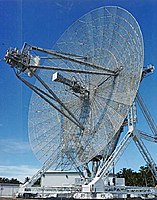
A Spectro-radiometric Analysis of Ocean Colour Sensors and Proposal for a Miniature Hyper Spectral Imager for Future
Sign Up to like & getrecommendations! Published in 2018 at "Journal of the Indian Society of Remote Sensing"
DOI: 10.1007/s12524-017-0726-2
Abstract: Abstract Ocean colour sensors traditionally are of fixed spectral channel systems with specified bandwidth of about 20 nm in the visible region and about 40 nm in Near Infrared region. In these systems, it is known that… read more here.
Keywords: spectro radiometric; radiometric analysis; analysis ocean; ocean colour ... See more keywords

Global marine biogeochemical reanalyses assimilating two different sets of merged ocean colour products
Sign Up to like & getrecommendations! Published in 2017 at "Remote Sensing of Environment"
DOI: 10.1016/j.rse.2017.03.040
Abstract: Abstract The only observations of marine biogeochemistry with routine global coverage are satellite ocean colour, which provide measurements of ocean bio-optical properties, with coverage still incomplete and limited to the sea surface. Models are therefore… read more here.
Keywords: global marine; biogeochemical reanalyses; model; marine biogeochemical ... See more keywords

Ocean-colour products for climate-change studies: What are their ideal characteristics?
Sign Up to like & getrecommendations! Published in 2017 at "Remote Sensing of Environment"
DOI: 10.1016/j.rse.2017.04.017
Abstract: Abstract Ocean-colour radiometry is recognised as an Essential Climate Variable (ECV) according to the Global Climate Observing System (GCOS), because of its capability to observe significant properties of the marine ecosystem at synoptic to global… read more here.
Keywords: ocean colour; climate change; change studies;

Radiometric validation of atmospheric correction for MERIS in the Baltic Sea based on continuous observations from ships and AERONET-OC
Sign Up to like & getrecommendations! Published in 2017 at "Remote Sensing of Environment"
DOI: 10.1016/j.rse.2017.08.024
Abstract: Abstract The Baltic Sea is a semi-enclosed sea that is optically dominated by coloured dissolved organic material (CDOM) and has relatively low sun elevation which makes accurate ocean colour remote sensing challenging in these waters.… read more here.
Keywords: processor; validation; rrs; sea ... See more keywords

Performance of Ocean Colour Chlorophyll a algorithms for Sentinel-3 OLCI, MODIS-Aqua and Suomi-VIIRS in open-ocean waters of the Atlantic
Sign Up to like & getrecommendations! Published in 2021 at "Remote Sensing of Environment"
DOI: 10.1016/j.rse.2021.112444
Abstract: Abstract The proxy for phytoplankton biomass, Chlorophyll a (Chl a), is an important variable to assess the health and state of the oceans which are under increasing anthropogenic pressures. Prior to the operational use of… read more here.
Keywords: olci; chl; modis aqua; sentinel ... See more keywords

Inter-slot radiometric discrepancy correction (IRDC) for GOCI ocean colour products
Sign Up to like & getrecommendations! Published in 2018 at "International Journal of Remote Sensing"
DOI: 10.1080/01431161.2017.1375619
Abstract: ABSTRACT The inter-slot radiometric discrepancy (IRD) causes serious inconsistency in geostationary ocean colour imager (GOCI) radiometric products across the neighbouring slots. An accurate IRD correction is essential for generating operational ocean colour products, but it… read more here.
Keywords: slot; correction; level; goci ... See more keywords

Sun glint correction with an inherent optical properties data processing system
Sign Up to like & getrecommendations! Published in 2020 at "International Journal of Remote Sensing"
DOI: 10.1080/01431161.2020.1811916
Abstract: ABSTRACT Frequent and extensive sun glint is a serious obstacle to real-time monitoring of ocean colour anomalies. We semi-analytically adjust an inherent optical properties (IOPs) data processing system for the open ocean to correct for… read more here.
Keywords: sun glint; ocean colour; glint; inherent optical ... See more keywords

Reproduction of Spatio-Temporal Patterns of Major Mediterranean Phytoplankton Groups from Remote Sensing OC-CCI Data
Sign Up to like & getrecommendations! Published in 2017 at "Frontiers in Marine Science"
DOI: 10.3389/fmars.2017.00246
Abstract: During the last two decades, several satellite algorithms have been proposed to retrieve information about phytoplankton groups using ocean colour data. One of these algorithms, the so-called PHYSAT-Med, was developed specifically for the Mediterranean Sea… read more here.
Keywords: sea; phytoplankton groups; cci; physat med ... See more keywords